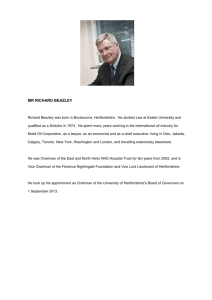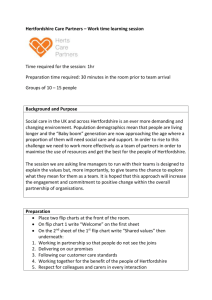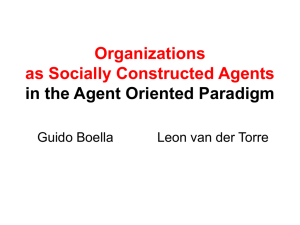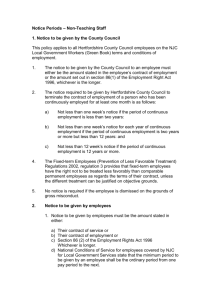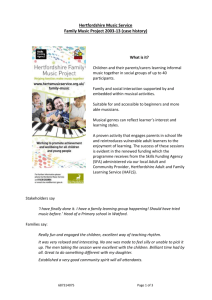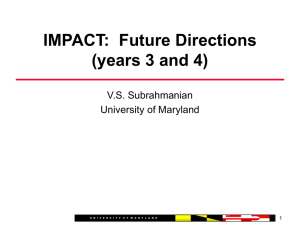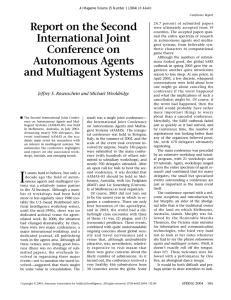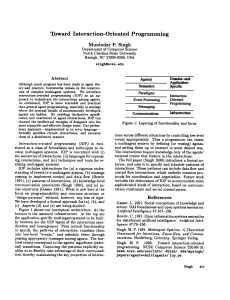The Design of Political Agents in the Age of Hyperhistory
advertisement
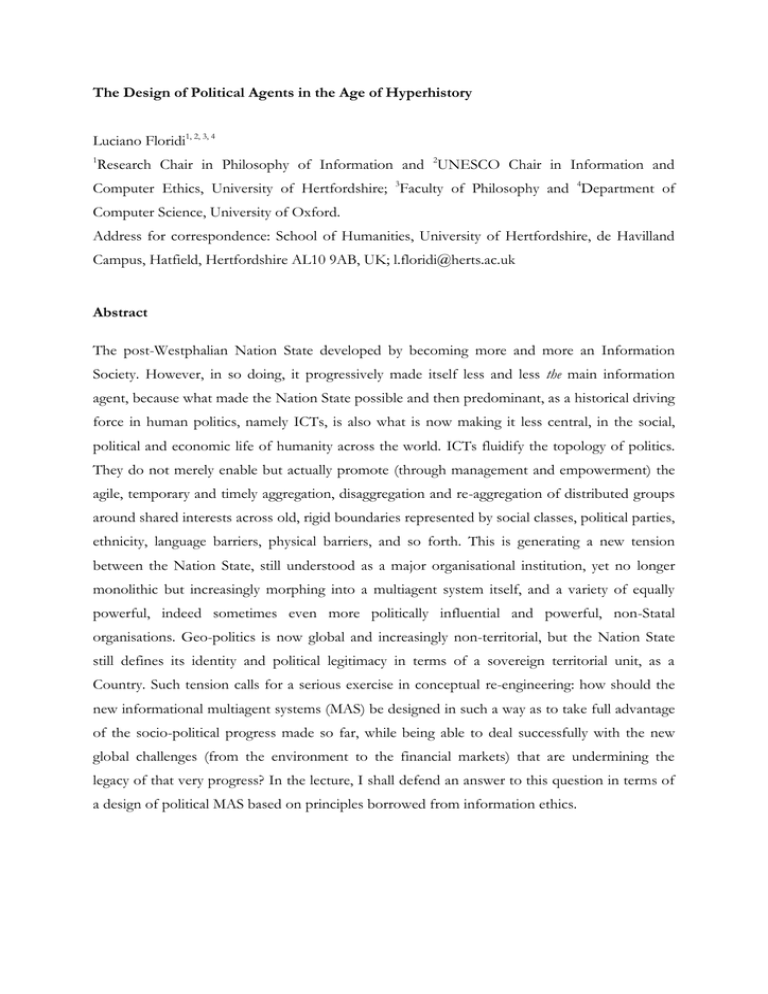
The Design of Political Agents in the Age of Hyperhistory Luciano Floridi1, 2, 3, 4 1 Research Chair in Philosophy of Information and 2UNESCO Chair in Information and Computer Ethics, University of Hertfordshire; 3Faculty of Philosophy and 4Department of Computer Science, University of Oxford. Address for correspondence: School of Humanities, University of Hertfordshire, de Havilland Campus, Hatfield, Hertfordshire AL10 9AB, UK; l.floridi@herts.ac.uk Abstract The post-Westphalian Nation State developed by becoming more and more an Information Society. However, in so doing, it progressively made itself less and less the main information agent, because what made the Nation State possible and then predominant, as a historical driving force in human politics, namely ICTs, is also what is now making it less central, in the social, political and economic life of humanity across the world. ICTs fluidify the topology of politics. They do not merely enable but actually promote (through management and empowerment) the agile, temporary and timely aggregation, disaggregation and re-aggregation of distributed groups around shared interests across old, rigid boundaries represented by social classes, political parties, ethnicity, language barriers, physical barriers, and so forth. This is generating a new tension between the Nation State, still understood as a major organisational institution, yet no longer monolithic but increasingly morphing into a multiagent system itself, and a variety of equally powerful, indeed sometimes even more politically influential and powerful, non-Statal organisations. Geo-politics is now global and increasingly non-territorial, but the Nation State still defines its identity and political legitimacy in terms of a sovereign territorial unit, as a Country. Such tension calls for a serious exercise in conceptual re-engineering: how should the new informational multiagent systems (MAS) be designed in such a way as to take full advantage of the socio-political progress made so far, while being able to deal successfully with the new global challenges (from the environment to the financial markets) that are undermining the legacy of that very progress? In the lecture, I shall defend an answer to this question in terms of a design of political MAS based on principles borrowed from information ethics.


